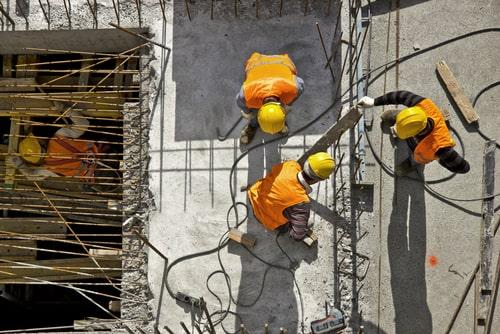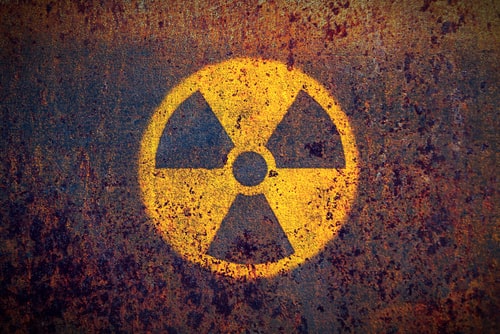Recent Blog Posts
What Can I Do if I Was Denied Workers’ Compensation?
 Workers who get injured during a work-related accident are generally entitled to workers’ compensation, which is intended to cover the costs related to the accident: hospital bills, medication and treatment, and income loss due to time spent away from work or an inability to resume your job. Sometimes, a workers’ compensation claim is denied for various reasons. Fortunately, there are still options for you if this happens. This article will provide some information about some of the steps you can take to appeal the denial. If this has happened to you, speak with an experienced Morgan Hill, CA workers’ compensation attorney who can guide you through the appeal process and seek maximum compensation.
Workers who get injured during a work-related accident are generally entitled to workers’ compensation, which is intended to cover the costs related to the accident: hospital bills, medication and treatment, and income loss due to time spent away from work or an inability to resume your job. Sometimes, a workers’ compensation claim is denied for various reasons. Fortunately, there are still options for you if this happens. This article will provide some information about some of the steps you can take to appeal the denial. If this has happened to you, speak with an experienced Morgan Hill, CA workers’ compensation attorney who can guide you through the appeal process and seek maximum compensation.
How Does an Appeal Work?
When an employer’s insurance company denies an initial workers’ comp claim, that does not have to be the final word. California law provides several steps for appealing a denial.
Inadequate Training and Employer Liability for Injuries
 If your job requires you to operate heavy machinery and equipment, you need to receive proper training so that you know how to handle it safely. Otherwise, you might end up mishandling it, which could lead to serious injury and material damage. If you were injured in a workplace accident while using equipment that you were never properly trained to handle, your employer might be liable for negligence in inadequately training you for your job. A skilled Hollister, CA workers’ compensation lawyer can review your case and offer valuable guidance on how to proceed.
If your job requires you to operate heavy machinery and equipment, you need to receive proper training so that you know how to handle it safely. Otherwise, you might end up mishandling it, which could lead to serious injury and material damage. If you were injured in a workplace accident while using equipment that you were never properly trained to handle, your employer might be liable for negligence in inadequately training you for your job. A skilled Hollister, CA workers’ compensation lawyer can review your case and offer valuable guidance on how to proceed.
How Can You Prove Employer Negligence?
In the state of California, employers are legally required to properly train any employees whose jobs entail the completion of high-risk. Whether you need to operate forklifts, chainsaws, hazardous materials, 18-wheeler trucks, or firearms, proper training is crucial for the safety of your work environment. If you are given rushed, insufficient training for the equipment you are required to handle at work, it would be considered negligence.
Workers Compensation Eligibility With PTSD
 Workplace injuries entitle most employees to workers’ compensation benefits to cover the costs of any injuries or other damage they suffered as a result of the injury. While visible, physical injuries are easier to identify, and mental health can also be affected. If it is, the employee might require treatment or be unable to work as a result, just like with any other injury. If you were injured at work and are suffering from post-traumatic stress disorder, or PTSD, speak with a Morgan Hill, CA workers’ compensation lawyer to understand your rights and seek the coverage you need and deserve.
Workplace injuries entitle most employees to workers’ compensation benefits to cover the costs of any injuries or other damage they suffered as a result of the injury. While visible, physical injuries are easier to identify, and mental health can also be affected. If it is, the employee might require treatment or be unable to work as a result, just like with any other injury. If you were injured at work and are suffering from post-traumatic stress disorder, or PTSD, speak with a Morgan Hill, CA workers’ compensation lawyer to understand your rights and seek the coverage you need and deserve.
Who Is Affected by PTSD?
According to the National Institute of Mental Health, anyone can get PTSD at any age, whether they personally experienced a traumatic event or heard about one that someone else lived through. However, we do not know exactly how many Americans are affected by PTSD for several reasons, including:
What Can I Do if I Lost My Eyesight in a Work Accident?
 Few of us ever have the chance to think about how our lives would be different if we lost vision in one or both eyes. But for others, accidents at work cause eye injuries that result in full or partial vision loss, triggering major life changes.
Few of us ever have the chance to think about how our lives would be different if we lost vision in one or both eyes. But for others, accidents at work cause eye injuries that result in full or partial vision loss, triggering major life changes.
Not being able to see does not only mean the loss of sight itself; it often means losing the ability to do the things you love. Everyday activities become much harder, and other things - like driving, cooking, and doing certain sports - may become impossible. In situations like this, it is absolutely essential that injured people get the help they need. And when this means ensuring that California Workers’ Compensation pays out a full and fair compensation, the attorneys with Cramer + Martinez are here to help.
How Does Permanent Disability Work in California?
 Whether you are a construction worker, a teacher, a doctor, a factory worker, or anything else, you can get injured while at work and make a workers’ compensation claim. Often, workers are granted temporary disability benefits to cover their injury-related medical expenses and loss of income in the immediate period following the incident. Unfortunately, some injuries result in permanent damage, and if that is the case, you can apply for permanent disability (PD) benefits. If you think you are eligible for permanent disability, an experienced Morgan Hill, CA workers’ compensation lawyer can review your case and guide you further.
Whether you are a construction worker, a teacher, a doctor, a factory worker, or anything else, you can get injured while at work and make a workers’ compensation claim. Often, workers are granted temporary disability benefits to cover their injury-related medical expenses and loss of income in the immediate period following the incident. Unfortunately, some injuries result in permanent damage, and if that is the case, you can apply for permanent disability (PD) benefits. If you think you are eligible for permanent disability, an experienced Morgan Hill, CA workers’ compensation lawyer can review your case and guide you further.
How Can I Get Approved for Permanent Disability?
When someone is injured at work, they can receive workers’ compensation benefits to cover all the medical expenses related to the injury. Some people also get temporary disability benefits, which compensate you for the income loss resulting from your injury during your recovery. Once your recovery is considered complete, meaning you have recovered as much as the medical authorities deem possible, you might be eligible for permanent disability if there are long-lasting issues you will need to live with.
How Do Independent Medical Reviews Factor in a California Workers’ Comp Case?
 When someone is injured at work, they can often get workers’ compensation benefits to help cover the costs of hospital bills, medication, and therapy as well as loss of income resulting from inability to work. Sometimes, an employee’s account of what happened and how he was injured is not enough to prove that he is truly entitled to the benefits. His employer or the employer’s insurance company might try to fight the claims or demand proof of the employee’s claims before they agree to any responsibility. In such cases, an independent medical review (IMR) might be requested. If you are trying to convince your employer or their insurance provider of the severity of injuries you suffered at work, speak with a knowledgeable Morgan Hill, CA workers’ comp attorney about getting an independent medical review.
When someone is injured at work, they can often get workers’ compensation benefits to help cover the costs of hospital bills, medication, and therapy as well as loss of income resulting from inability to work. Sometimes, an employee’s account of what happened and how he was injured is not enough to prove that he is truly entitled to the benefits. His employer or the employer’s insurance company might try to fight the claims or demand proof of the employee’s claims before they agree to any responsibility. In such cases, an independent medical review (IMR) might be requested. If you are trying to convince your employer or their insurance provider of the severity of injuries you suffered at work, speak with a knowledgeable Morgan Hill, CA workers’ comp attorney about getting an independent medical review.
How Does an Independent Medical Review Work?
If a dispute arises over an employee’s request for medical care, a utilization review (UR) can be ordered. Its purpose is to determine whether someone’s condition truly necessitates the requested care. If a UR results in the employee being denied treatment or offered a modified treatment plan, that same employee can request an independent medical review. He just needs to make sure that the request is submitted within 30 days of receiving the UR determination.
How Do Supplemental Job Displacement Benefits Work in California?
 When a worker suffers a serious injury with long-lasting effects while on the job, it can be devastating to try to resume a routine once they are in a stable condition and able to work. Employees can receive workers’ compensation benefits that cover the medical expenses, loss of income, and other costs related to their injury until they are medically approved to go back to work. What happens if you can work, generally speaking, but your injury means you can never resume the job you previously had? What if your previous job was something you had to go through specific training for and you do not have the skills needed for other jobs? If this describes you, a Santa Clara County, CA workers’ compensation attorney can walk you through the process of obtaining supplemental job displacement benefits to receive training for a different job.
When a worker suffers a serious injury with long-lasting effects while on the job, it can be devastating to try to resume a routine once they are in a stable condition and able to work. Employees can receive workers’ compensation benefits that cover the medical expenses, loss of income, and other costs related to their injury until they are medically approved to go back to work. What happens if you can work, generally speaking, but your injury means you can never resume the job you previously had? What if your previous job was something you had to go through specific training for and you do not have the skills needed for other jobs? If this describes you, a Santa Clara County, CA workers’ compensation attorney can walk you through the process of obtaining supplemental job displacement benefits to receive training for a different job.
What Should I Know about OSHA in California?
 The world is certainly an interesting place. On the one hand, with smartphones and so many apps available, we have access to limitless knowledge at our fingertips. With this knowledge comes awareness of potential threats and ways to avoid them, which can help improve lives. On the other hand, all this technology and information has not changed the fact that life can sometimes be risky and you can get injured doing any number of things. For example, you can mind your business and go to work to get your job done but end up getting severely hurt in your workplace. Construction work, office work, and everything in between can pose some sort of potential threat of injury. If you get injured at work, you might be entitled to a workers’ compensation claim. If you have not been injured but are concerned about potential dangers at your workplace, a knowledgeable San Benito County, CA workers’ compensation lawyer can explain how the Occupational Safety and Health Administration (OSHA) works to protect you.
The world is certainly an interesting place. On the one hand, with smartphones and so many apps available, we have access to limitless knowledge at our fingertips. With this knowledge comes awareness of potential threats and ways to avoid them, which can help improve lives. On the other hand, all this technology and information has not changed the fact that life can sometimes be risky and you can get injured doing any number of things. For example, you can mind your business and go to work to get your job done but end up getting severely hurt in your workplace. Construction work, office work, and everything in between can pose some sort of potential threat of injury. If you get injured at work, you might be entitled to a workers’ compensation claim. If you have not been injured but are concerned about potential dangers at your workplace, a knowledgeable San Benito County, CA workers’ compensation lawyer can explain how the Occupational Safety and Health Administration (OSHA) works to protect you.
Retaliation in California Workers’ Compensation Cases
 Employers in California are not legally permitted to retaliate against any employers who file workers’ compensation claims. In other words, employees cannot be punished for filing a claim if it is valid and filed in good faith. Employees also cannot be discouraged from filing such a claim. However, some employers might try to threaten their employees to discourage them from filing such claims. If you believe your employer is retaliating against you after you filed a worker’s compensation claim, you should speak with an experienced Morgan Hill, CA workers’ compensation lawyer to arm yourself with the information you need to be empowered in your case.
Employers in California are not legally permitted to retaliate against any employers who file workers’ compensation claims. In other words, employees cannot be punished for filing a claim if it is valid and filed in good faith. Employees also cannot be discouraged from filing such a claim. However, some employers might try to threaten their employees to discourage them from filing such claims. If you believe your employer is retaliating against you after you filed a worker’s compensation claim, you should speak with an experienced Morgan Hill, CA workers’ compensation lawyer to arm yourself with the information you need to be empowered in your case.
What Constitutes Retaliation?
If an employee comes forward with a workers’ compensation claim and their employer does something to either make them rescind their claim or punish them for submitting it, this might be considered retaliation. Examples of retaliation include:
Radiation Exposure at Work in California: What to Know
 Radiation is a form of energy that can move in waves. There are many sources of radiation, some more harmful than others. The sun produces an enormous amount of radiation which in turn provides the Earth with light and heat. Microwaves often use electromagnetic radiation to safely heat food. X-ray technology uses radiation to produce imagery that is essential in diagnosing and monitoring medical conditions. As the Environmental Protection Agency (EPA) likes to say, radiation is a part of our lives.
Radiation is a form of energy that can move in waves. There are many sources of radiation, some more harmful than others. The sun produces an enormous amount of radiation which in turn provides the Earth with light and heat. Microwaves often use electromagnetic radiation to safely heat food. X-ray technology uses radiation to produce imagery that is essential in diagnosing and monitoring medical conditions. As the Environmental Protection Agency (EPA) likes to say, radiation is a part of our lives.
However, some forms of radiation are harmful and can even cause serious injury or even death. People need to be able to follow safety guidelines to keep themselves safe and healthy in the face of possible radiation exposure. Unfortunately, you may be exposed to harmful radiation at your place of work. Every day, people in various spheres and industries are exposed to radiation. If you believe you have suffered from harmful exposure to radiation at your place of work, a Santa Clara County, CA workers’ compensation attorney can help you understand whether you are entitled to collect benefits as a result.








